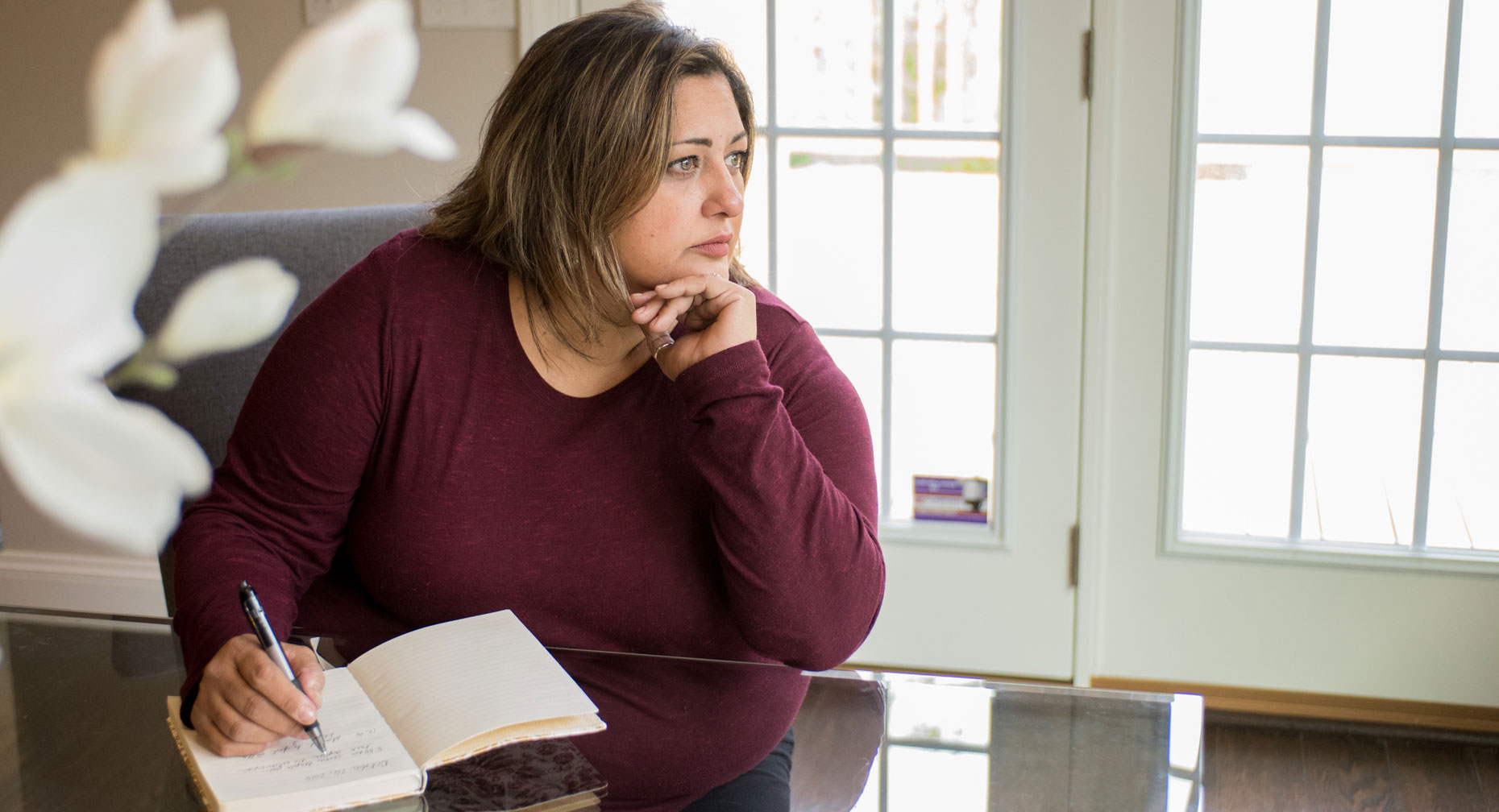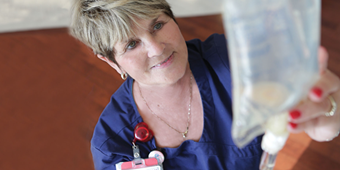Diagnosed with Uterine Cancer? Know What to Ask.

Answer a few questions and we'll provide you with a list of primary care providers that best fit your needs.
If you’ve just been diagnosed with uterine cancer, you might feel like your whole world has changed in just one moment. Does everything feel like it’s racing out of control? Do you need to just hit “pause” and wait for your heart, body and mind to get on the same page again? You may know that it is normal to experience all this – and more! – when you are diagnosed with cancer. But that doesn’t make it make it any easier to cope. Give yourself time to process the information. Let your care team help you navigate your uterine cancer diagnosis, decisions, treatment and recovery.
Give yourself time to process the information.
Many women find it helpful to bring a list of questions to doctor appointments – at every step from diagnosis to follow-up care. That way, you’re prepared to get the information you need, even if your mind starts racing or your emotions become overwhelming.
When You are Diagnosed with Uterine Cancer
 What type of uterine cancer do I have?
What type of uterine cancer do I have?- Can you go over my laboratory test results with me?
- What stage of cancer am I in, and what does that mean?
- What is my prognosis?
When You are Deciding on a Treatment Plan
- What are my options for treatment?
- Are there any clinical trials that I could participate in?
- Is the goal of my treatment to remove the cancer, help me feel better, or both?
- Are there side effects or risks involved with my treatment plan?
- How will this treatment affect my daily life?
During Uterine Cancer Treatment
- How and when will we know if the treatment is working?
- Are there short-term and long-term side effects of this treatment?
- What can I do to manage my side effects?
- How much will my treatment affect my daily life (work, exercise, social activities)?
- Will I be able to become pregnant during this treatment?
- Who should I speak to if I am worried about the costs involved with my cancer treatment?
During Follow-up care
- Is there a chance that the symptoms will come back? If so, which signs should I look out for?
- Will any “late term” side effects occur?
- Will I need to have follow-up exams or appointments regularly? If so, how often?
- When can I get back to my normal life at work and/or around the house?
Answer a few questions and we'll provide you with a list of primary care providers that best fit your needs.
Source: American Cancer Society; American Society Clinical Oncology




